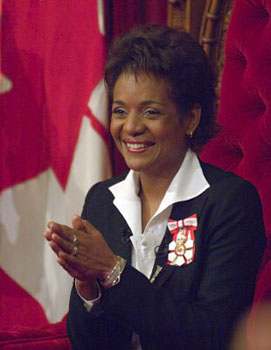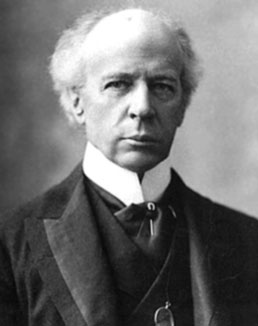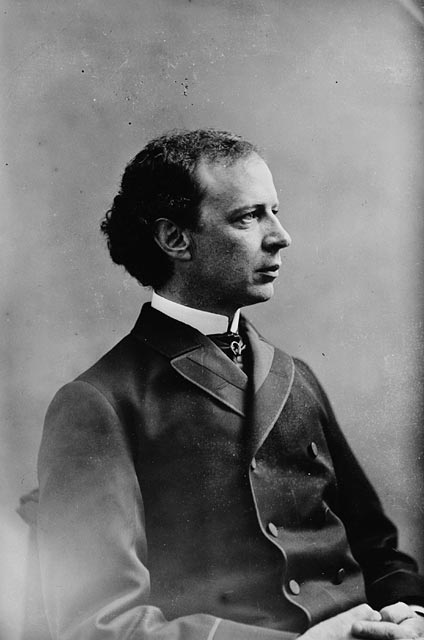In this round of six degrees of Canadian history, we start with the best-selling Canadian album of the 1990s and end with a Canadian prime minister from the late 1890s and early 1900s. The album is Alanis Morissette’s iconic Jagged Little Pill, which broke numerous sales records and left an indelible mark on the alternative rock scene. The prime minister is Sir Wilfrid Laurier, who served the longest uninterrupted term as Canada’s prime minister. Thus both the album and the politician represent outstanding Canadian achievements, but of very different kinds. Let’s see how we can connect the two.
The following article is from our Six Degrees of Canadian History series. Past series are not updated.
Jagged Little Pill

The album Jagged Little Pill came out in 1995, rose to the top of the international charts, and made its creator, Alanis Morissette, one of the best-known Canadian singer-songwriters in the world. The album sold 16 million copies in the United States and 33 million worldwide, thus breaking two records at once: highest-selling debut album by a female artist in the US and best-selling debut album ever worldwide. It was also the best-selling album of the 1990s and the first album by a Canadian artist to sell more than two million copies in Canada.
Alanis Morissette was born on 1 June 1974 in Ottawa, Ontario, of a Hungarian mother and a Franco-Ontarian father.
Franco-Ontarians

Franco-Ontarians are Canadians who live in Ontario and speak French at home. According to the 2011 census, there are 611,500 Franco-Ontarians (4.9 per cent of Ontario’s population).
The Ontario government recognized French as an official language in the province’s secondary schools in 1969 and passed the Courts of Justice Act, which gave French the status of an official language of the courts, in 1984. In 1986, the Legislative Assembly of Ontario passed the French Language Services Act.
Ontario’s legislature is a member of the Assemblée parlementaire de la Francophonie (the consultative assembly of French-speaking parliaments) but, unlike Canada, Québec and New Brunswick, Ontario is not a member of the International Organisation of La Francophonie (IOF). However, as of 2016, the Secretary General of the IOF is a Canadian: former governor general Michaëlle Jean.
Michaëlle Jean

Born in Haiti, Michaëlle Jean became the first Black Canadian woman to work for a French-language television news broadcast in Canada. By 2004, she was well enough known among French-speaking Canadians to launch her own current-affairs program, Michaëlle, on CBC/Radio-Canada’s French-language news network, the Réseau de l’information. In English Canada, Jean is a familiar figure to viewers of the CBC Newsworld documentary programs The Passionate Eye and Rough Cuts, which she hosted from 1999 to 2005.
Succeeding Adrienne Clarkson as governor general on 27 September 2005, Jean used her office to advance human rights, support the arts, draw attention to social and economic problems in northern Canada, and promote Canada abroad, particularly in Africa and in her native Haiti.
David Johnston succeeded Jean as governor general on 1 October 2010, and she was appointed chair of the board of directors of the Institute for Advanced International Studies at Université Laval that same month. She became chancellor of the University of Ottawa in February 2012.
University of Ottawa

The University of Ottawa, in Ottawa, Ontario, began as the College of Bytown, founded by the Catholic Oblate Fathers in 1848. In 1861, the institution changed its name to the College of Ottawa. It is one of the largest bilingual universities in North America. Fulfilling its mandate to promote bilingualism and biculturalism in a multicultural environment, the University of Ottawa offers programs combining instruction and research in both of Canada’s official languages.
Over the last quarter of the 19th century, the issue of minority rights to education resulted in several crises in Canada — first in New Brunswick, Manitoba and the North-West Territories, and then in Ontario. By far the most complex of these crises, with the most far-reaching consequences, was the Manitoba Schools Question.
Manitoba Schools Question

The Manitoba Act of 1870 established a dual system of Protestant and Roman Catholic schools in the province. With the massive influx of English-speaking Protestants from Ontario, the proportions of francophones and Catholics in Manitoba’s population decreased. In March 1890, the Liberal provincial government of Thomas Greenway passed a law abolishing all public funding for Manitoba’s Catholic schools. In two decisions, the federal Privy Council upheld the validity of the Manitoba law, but affirmed the federal government’s power to restore the lost privileges with respect to education.
In the federal election campaign of 1896, Wilfrid Laurier refused to take a definite position on this issue, but French Canadians believed that he would be more favourable to minority rights than the Conservatives and so helped elect him prime minister. Laurier confounded their expectations, however, and failed to champion school rights for Manitoba’s Catholic minority. Through the Laurier-Greenway compromise of late 1896, it was decided that the province would not restore the system of Catholic separate schools that had prevailed before 1890, but that certain concessions would be made to the province’s Catholic minority.
In the interests of national harmony and the principle of the “lesser evil,” Laurier thus began the policies of compromise that were to keep him in power for many years.
Wilfrid Laurier

Leader of the Liberal Party of Canada from 1887 to 1919, Wilfrid Laurier was the first French Canadian to hold the office of prime minister of Canada after Confederation (from 1896 to 1911). The dominant political figure of his era, he promoted Canada’s growth and development by encouraging immigration to western Canada, supporting construction of a second transcontinental railroad, and personally overseeing the creation of two new provinces: Alberta and Saskatchewan.
A nimble, eloquent politician and a true legend in his time, Laurier has been judged in widely divergent ways by historians. Because of his success in pursuing and strengthening Confederation, some see him as the spiritual heir of Sir John A. Macdonald. But others criticize him for having too often sacrificed the interests of Catholic French Canadians for the sake of national unity and necessary compromise. After becoming Opposition leader in 1911, Laurier defended the rights of Franco-Ontarians to bilingual instruction in Ontario’s schools. He also rejected government plans for military conscription during the First World War, instead proposing that a referendum be held on this issue while voluntary recruitment efforts continued.

 Share on Facebook
Share on Facebook Share on X
Share on X Share by Email
Share by Email Share on Google Classroom
Share on Google Classroom

















